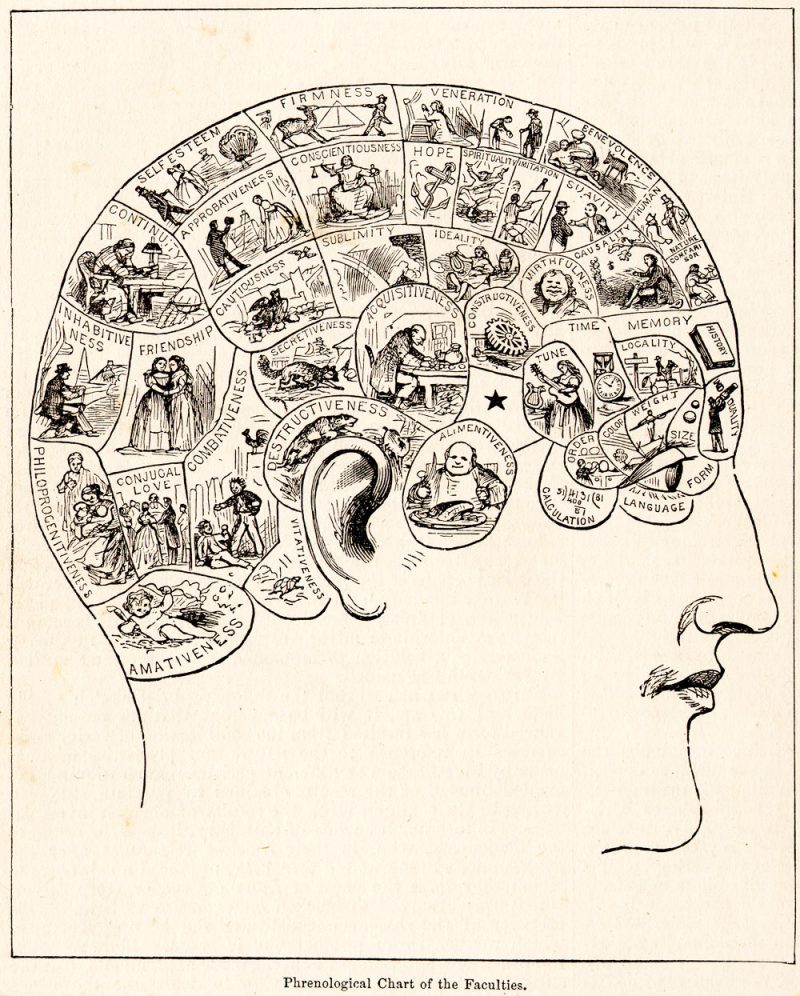
Beloved British astronomer Guy Ottewell originally published this piece about AI at his website on May 10, 2023. Reprinted with permission. Edits by EarthSky.
Artificial intelligence … boom
There’s been a lot of talk about artificial intelligence, aka AI. There’s concern that it will displace human beings. For example, it can compose texts and music, which are said to be indistinguishable from what humans can do. It’s become known that much of what AI spews out could be libel, or propaganda, or pseudoscience and/or other misinformation. Here are some thoughts on the subject, an experiment, and the results of a probe.
So far, there hasn’t been much attempt to explain how artificial intelligence differs from the rest of computing. From my own experience with computing, I suspect it’s based on writing programs that learn from their own results. For example, if equation one produces more fulfilled predictions than equation two, drop equation two. And, what’s more, AI uses large language, or enormous quantities of digitized text that it can search and compare.
Now, there’s an entity (presumably consisting of humans) called OpenAI. And OpenAI has created ChatGPT, a digital robot that you can try, and that can chat with you and answer questions.
An experiment with AI
Larry Bohlayer, creator of the popular annual lunar calendar sold by EarthSky and others, is a friend of mine. He sent me an article – from Popular Mechanics, a review of an article in the journal Ancient Mesoamerica – about something he knew I had taken an interest in. That is the complex calendar systems of the ancient Maya culture of central America. Among the many cycles in those systems is one of 819 days. And that 819-day cycle had long puzzled scholars. But now, they’ve realized that if 20 of these 819-day cycles are considered, making 45 years, there are correlations with the periods of the planets. Plus, I remembered that 20 is the favorite factor used by the Maya in their several systems.
Then, Larry did an experiment, he asked ChatGPT to evaluate the article he had sent me.
So, the robot answered with 324 words. It listed a website, an online tool and three books about the Maya calendar, which it must have found in its large-language database. The paragraphs about these five items read like, and probably are, the authors’ or publishers’ blurbs about them. “This book provides a comprehensive overview,” etc.
Essentially, the bot told Larry to go and read the books himself and make up his own mind about the 819-day cycle.
The Maya calendar prediction
One of the books was Maya Cosmogenesis 2012: The True Meaning of the Maya Calendar End-Date by John Major Jenkins. This, published in 1998, was based on the debunked idea that the end of one of the cycles, on December 20, 2012, amounted to a prediction by the Mayans, when they set up their calendar around 200 AD, that the world would end on December 20, 2012. Indeed, you might recall the hoopla around that date, at that time.
Later, after visiting the Maya temples, and making the cover painting for Astronomical Calendar 2010, I summed up the many ridiculous aspects of that scare story here.
Artificial intelligence probe of Guy Ottewell
Then, Larry had fun asking the chatbot about me. It found bits of my own blurbs about my Astronomical Calendar; and I was delighted to find that on everything else I was safe from it. It said I was born in 1932, studied at the University of London, live in Connecticut (all wildly wide off the mark). And then, it gave me credit for publications by other people, and magazine contributions that I hadn’t made. Plus, there were several awards that I wasn’t aware of receiving.
So, judge for yourself the distance remaining between artificial intelligence and the brain.

Bottom line: Beloved astronomer Guy Ottewell weighs in on artificial intelligence. Apparently what ChatGPT reported about him to a friend isn’t accurate. But it’s entertaining!
Read more: Meet ChatGPT, your new AI best friend
The post Artificial intelligence: Thoughts by astronomer Guy Ottewell first appeared on EarthSky.
from EarthSky https://ift.tt/ovy1jwf

Beloved British astronomer Guy Ottewell originally published this piece about AI at his website on May 10, 2023. Reprinted with permission. Edits by EarthSky.
Artificial intelligence … boom
There’s been a lot of talk about artificial intelligence, aka AI. There’s concern that it will displace human beings. For example, it can compose texts and music, which are said to be indistinguishable from what humans can do. It’s become known that much of what AI spews out could be libel, or propaganda, or pseudoscience and/or other misinformation. Here are some thoughts on the subject, an experiment, and the results of a probe.
So far, there hasn’t been much attempt to explain how artificial intelligence differs from the rest of computing. From my own experience with computing, I suspect it’s based on writing programs that learn from their own results. For example, if equation one produces more fulfilled predictions than equation two, drop equation two. And, what’s more, AI uses large language, or enormous quantities of digitized text that it can search and compare.
Now, there’s an entity (presumably consisting of humans) called OpenAI. And OpenAI has created ChatGPT, a digital robot that you can try, and that can chat with you and answer questions.
An experiment with AI
Larry Bohlayer, creator of the popular annual lunar calendar sold by EarthSky and others, is a friend of mine. He sent me an article – from Popular Mechanics, a review of an article in the journal Ancient Mesoamerica – about something he knew I had taken an interest in. That is the complex calendar systems of the ancient Maya culture of central America. Among the many cycles in those systems is one of 819 days. And that 819-day cycle had long puzzled scholars. But now, they’ve realized that if 20 of these 819-day cycles are considered, making 45 years, there are correlations with the periods of the planets. Plus, I remembered that 20 is the favorite factor used by the Maya in their several systems.
Then, Larry did an experiment, he asked ChatGPT to evaluate the article he had sent me.
So, the robot answered with 324 words. It listed a website, an online tool and three books about the Maya calendar, which it must have found in its large-language database. The paragraphs about these five items read like, and probably are, the authors’ or publishers’ blurbs about them. “This book provides a comprehensive overview,” etc.
Essentially, the bot told Larry to go and read the books himself and make up his own mind about the 819-day cycle.
The Maya calendar prediction
One of the books was Maya Cosmogenesis 2012: The True Meaning of the Maya Calendar End-Date by John Major Jenkins. This, published in 1998, was based on the debunked idea that the end of one of the cycles, on December 20, 2012, amounted to a prediction by the Mayans, when they set up their calendar around 200 AD, that the world would end on December 20, 2012. Indeed, you might recall the hoopla around that date, at that time.
Later, after visiting the Maya temples, and making the cover painting for Astronomical Calendar 2010, I summed up the many ridiculous aspects of that scare story here.
Artificial intelligence probe of Guy Ottewell
Then, Larry had fun asking the chatbot about me. It found bits of my own blurbs about my Astronomical Calendar; and I was delighted to find that on everything else I was safe from it. It said I was born in 1932, studied at the University of London, live in Connecticut (all wildly wide off the mark). And then, it gave me credit for publications by other people, and magazine contributions that I hadn’t made. Plus, there were several awards that I wasn’t aware of receiving.
So, judge for yourself the distance remaining between artificial intelligence and the brain.

Bottom line: Beloved astronomer Guy Ottewell weighs in on artificial intelligence. Apparently what ChatGPT reported about him to a friend isn’t accurate. But it’s entertaining!
Read more: Meet ChatGPT, your new AI best friend
The post Artificial intelligence: Thoughts by astronomer Guy Ottewell first appeared on EarthSky.
from EarthSky https://ift.tt/ovy1jwf

Aucun commentaire:
Enregistrer un commentaire